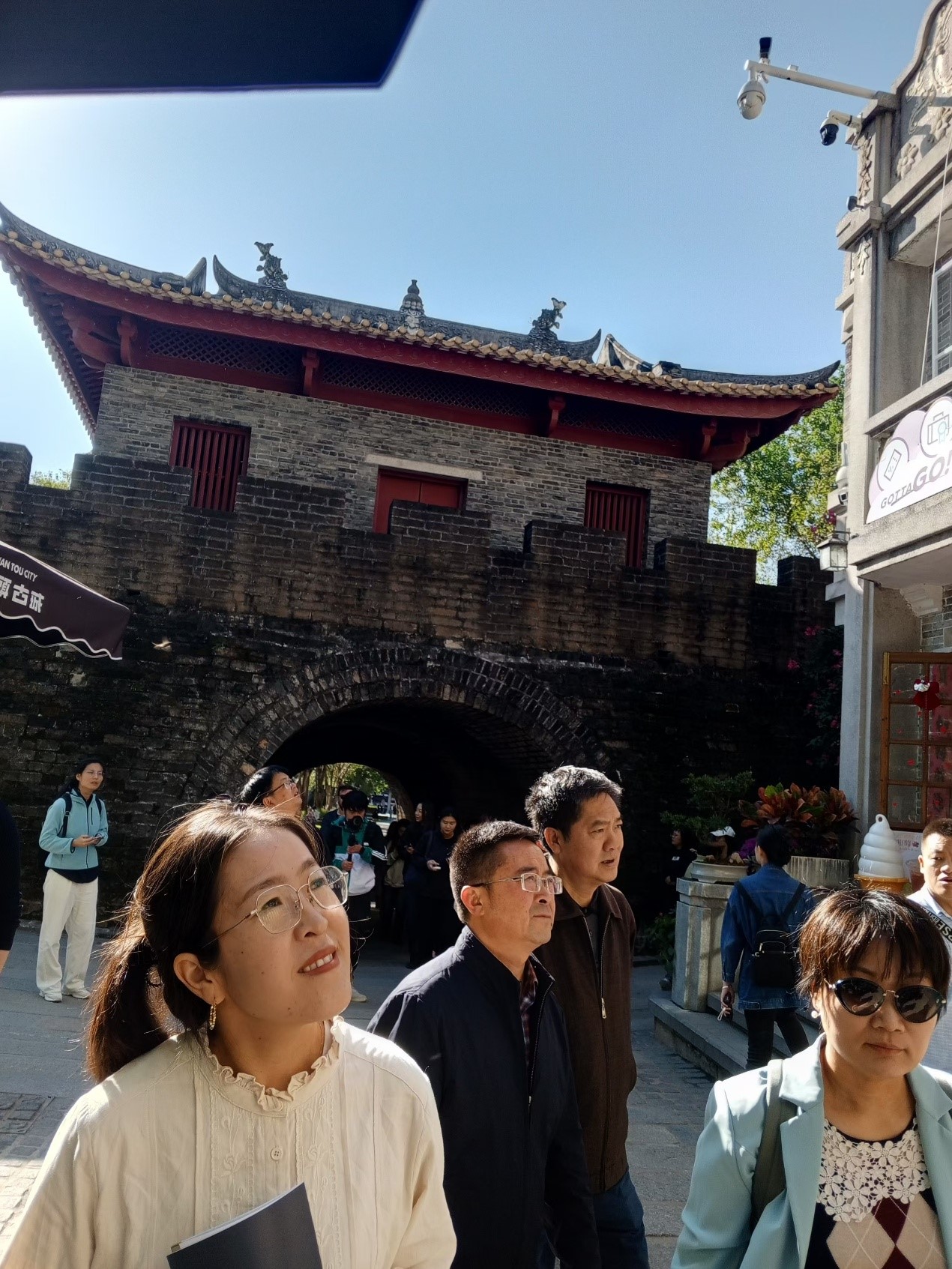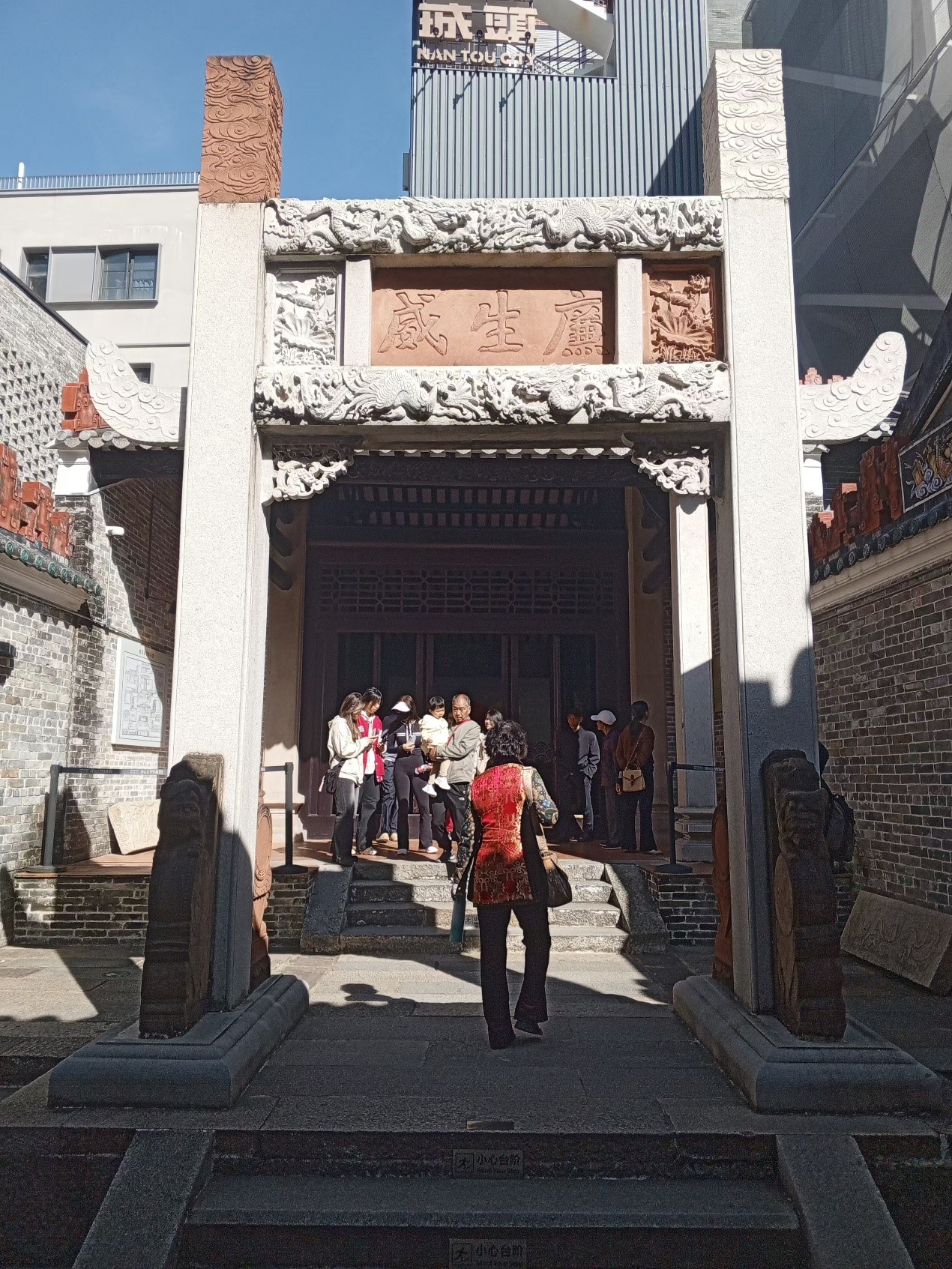Nantou Ancient City: A living testament of heritage and modernity

Visitors and journalists explore the Nantou Ancient City in Nanshan district, south China's Shenzhen, Nov. 28, 2024. Behind them stands the South Gate, remarkably well-preserved and a symbol of the city's centuries-old heritage. (Photo/People's Daily Online)
Nantou Ancient City, situated right in the center of south China's Shenzhen, stands as a bridge between past and present. It impressively blends centuries-old traditions with the vitality of a contemporary urban hub. The author, as a Greek visitor journalist, draws parallels between this enchanting site and the historic centers of Greece. Both arouse a deep sense of continuity, with historical strata telling tales of tenacity, development, and cultural pride.
With its roots dating back nearly 1,700 years, Nantou was once a bustling administrative and military center during the Jin Dynasty (265-420). Despite Shenzhen's standing as a worldwide center of innovation, its restored buildings and winding streets now reflect the legacy of a bygone period. Anyone who is familiar with the dual identities of historic towns like Athens, Rhodes, or Heraklion in Greece, he or she will find great resonance in this difficult balance between upholding history and accepting modernity.

Journalists enjoy an in-depth guided tour of one of Nantou's revitalized historic buildings, now repurposed as a mini-museum showcasing the city’s architectural evolution over the centuries in Nantou Ancient City, Nanshan district, south China's Shenzhen, Nov. 28, 2024. (Photo/People's Daily Online)
What genuinely draws you to Nantou is the painstaking restoration work. The revitalization initiatives not only preserved Ming and Qing Dynasty buildings, but also redesigned them for modern usage. Art galleries, creative studios, and cultural events now occupy the rebuilt buildings, revitalizing this historic neighbourhood. This dynamic union echoes efforts to preserve Greece's ancient sites, where adaptive reuse brings history to life for future generations.
Walking through Nantou's colourful streets reveals a visual sense of history. Traditional markets mix with modern cafes, and historical sites such as the Nantou Museum encourage reflection on the region's strategic importance. These activities demonstrate Shenzhen's commitment to cultural identity in the face of growing urbanization.
The most moving element of author's visit was seeing how Shenzhen has transformed Nantou into more than simply a preserved relic. It is a living, breathing environment in which the past influences the future. This strategy teaches a significant lesson: tradition and progress are not diametrically opposed forces, but rather complementing components of a community that cherishes its roots while moving forward.
Nantou Ancient City is a microcosm of Shenzhen's greater ideology of sustainable urbanization, cultural preservation, and innovation. It is a global example of how to honour history while creating an inclusive, forward-thinking atmosphere. Nantou is more than just a destination for every traveller, especially those from historically rich nations such as Greece.

The entrance to the ancient governance building in Nantou Ancient City, Nanshan district, south China's Shenzhen, Nov. 28, 2024. Surrounded by modern structures, the preservation of these relics captivates visitors, encouraging them to explore every detail of this historical site. (Photo/People's Daily Online)
Photos
Related Stories
- Illuminating the 'city of the future' with technology
- Shenzhen's Yantian Port expands global reach with increased throughput in 2024
- Mecha whale shark swims with fish at Shenzhen aquarium
- International journalists share their "lighthouse" stories at Shenzhen's lighthouse library
- Hi-tech display screen gains popularity with low-carbon material
- China's replica art village reinvents itself as original art hub
- Stunning views of Yantian Port reminds Greek reporter of home
- Feature: Experts call for closer partnership between Shenzhen, New York City to drive innovation, growth
- Over 4,300 new technologies, products shine at China Hi-Tech Fair
- China's Shenzhen named "Smart City of 2024" at Barcelona expo
Copyright © 2024 People's Daily Online. All Rights Reserved.









